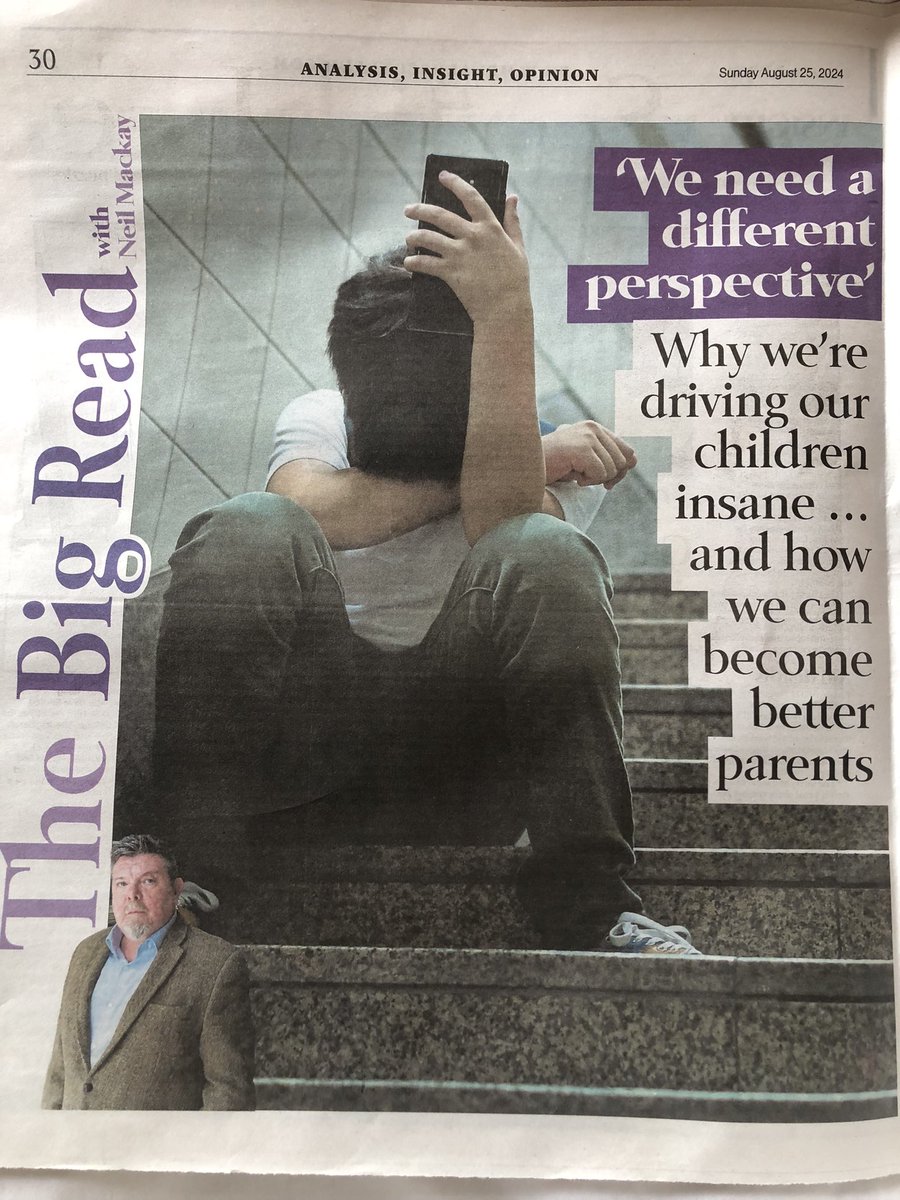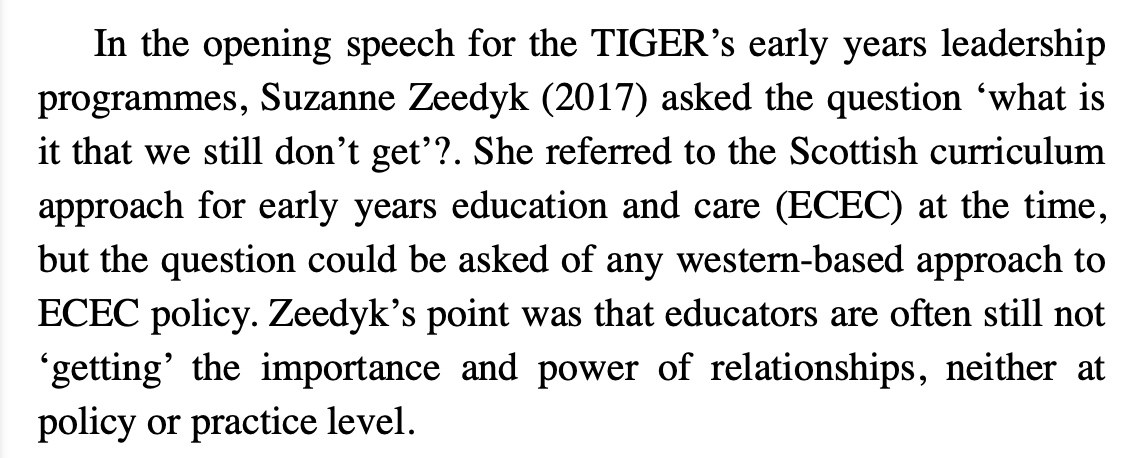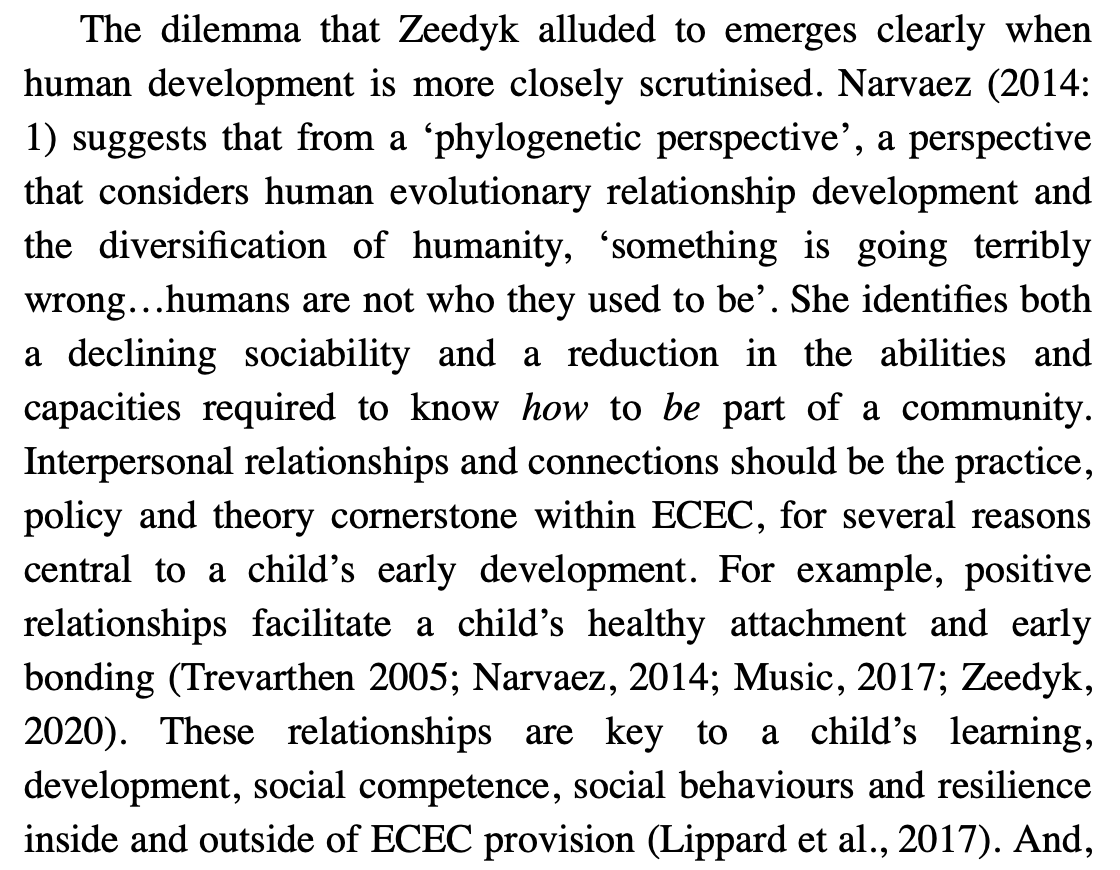The Queen's funeral provides valuable insights into why a trauma-informed approach is so counter-cultural for Britain. Bottom line: We esteem suffering. Duty, denial, transcendence, connection. It's all there, mixed together. A THREAD. 

2. At its core, a trauma-informed, relational, ACE-aware, attachment-led approach (call it what you wish) asks us to 1) listen to emotions and 2) respond to them with soothing when they are sore. If we don't, then we become unhealthy & disconnected from ourselves & others.
3.The Queen's funeral, with its emphasis on formality &duty, is t exact opposite of that. All t grief of t family, their loss? The point of t exercise is to repress that emotion, make it private, drive it inward. And here's my key point: The public ESTEEMS that.They marvel at it. 

4. How do they manage it? How can they appear calm whn bereavement is raw, sickening, overwhelming? So many ppl, during Covid, experienced t loss of a parent/grandparnt. That pain can be so awful you think you might die too. And yet here they are calm. It's weirdly comforting. 

5. And so t public comes to revere that reserve. In fact, they come to demand it. "Charles puts duty before grief", t newspapers tell us. We celebrate that emotional denial. Our culture focuses on their behaviour *knowing* that they are in emotional pain. hulldailymail.co.uk/news/uk-world-…
6. No wonder there's so much controversy about Harry & Meghan holding hands. They aren't practising restraint. Many members of t public feel they have a *right* to demand that restraint. Take t @LBC call: "Everyone else managed not to do it."
https://twitter.com/LBC/status/1570396444049440770?s=20&t=NMGo21U0wzdzOG2c_Pcv8g
7. So where does t powerful class learn this skill? Where do they undertake lessons in repressng emotion? Well, early boarding school is good for that. That's what ppl like @nickduffell @JoySchaverien @axrenton @BeardRichard @PiersCross1 hv been trying to get ppl to understand. 

8. To repress feelings creates suffering. To be unable to soothe sore emotions creates suffering. That's what a trauma-informed approach is teaching us. Britain is naturally culturally challenged by that idea. We are a culture who still *esteems* repression in our leaders.
9. The irony is that suffering is transcendent for human beings. It gives things meaning. That's part of t point of The Queue, isn't it? People hv suffered a bit by t time they reach The Queen. Suffering turns it into a pilgrimage. Connection is a succour &joy during t long wait. 

10. But all those ppl consciously chose their suffering. They hv control over it. Yet if we revere behaviour, we are easily at risk of inflicting suffering on others - like children & nations - without ever noticing we are doing it. It gets uncomfortable when pointed out. 

11. There are many many ppl now, in Britain, who are trying to bring trauma awareness to schools & communities & policy makers. I'm just trying, with this thread, to help us see why that shift can be so resisted. It is counter-cultural and threatening to societal hierarchy. 

12. The skill of repressng emotions does not begin in adulthood. It begins in childhood.Perfectng it means getting good at unconscious denial. And if enough childrn within a culture grow up w/ that skill, thn that culture has denial woven into its core.That's unhealthy,dangerous. 

13. In 1952, t year that t Queen became Queen, it was standard practice for hospitals to exclude parents frm staying w/ their childrn. Whn scientists tried to say ths ws causing suffering to children,that was too hard to hear. Systems reached for denial.
14. Making trauma-informed change begins by stepping into #FierceCuriosity about things we wd rather deny, by being willing to recognise unintentional unkindnesses, by foregrounding connection. This week of mourning provides lots of fascinating lessons in all of that. 

15/end. I thank all of you who keep encouraging me to offer these insights. They are edgy, but then trauma awareness asks courage & curiosity of all of us. I am glad if my observations help with either of those.
ps Be sure to find some laughter today.
ps Be sure to find some laughter today.
• • •
Missing some Tweet in this thread? You can try to
force a refresh





















